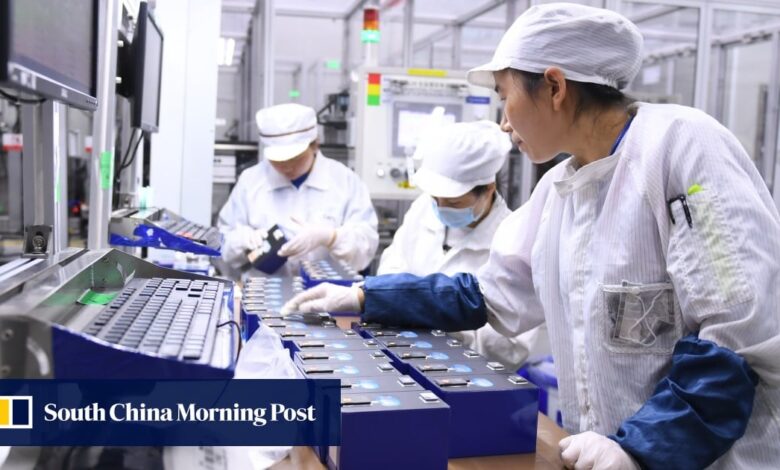Chinese firms urged to brace for tech-for-market swap with inevitable overseas expansion

More Chinese companies would likely partner with overseas firms when they expand abroad, leveraging their technology and supply chains, in exchange for market access, analysts said, despite rising geopolitical risks and hostility.
“When companies go abroad, maybe at some point you need to get used to what foreign companies encounter when they are doing business in China,” said Xu Sitao, chief economist at Deloitte Research.
“There will be some sort of nudging for partnerships by foreign governments, sometimes forced partnerships, what we call ‘technology for market’.
“But that’s OK because that would accelerate the process for turning into a genuine local company, and also help China with communication with abroad.”
Xu Sitao added Chinese firms are already under pressure from other economies to move further downstream to boost economic development and provide more jobs, while more policies will be introduced, for example, in data security.
When foreign enterprises entered China in the 1980s, they often had to exchange their advanced technology for access to the domestic market, particularly in the automotive industry.
The “technology for market” strategy allowed China to obtain superior technologies, helping boost its own technological capabilities and innovation.
Western countries, led by the United States and the European Union, have been ramping up tariffs and subsidies to protect their domestic enterprises against the perceived threat of Chinese products and companies entering their markets, further intensifying the deglobalisation trend.
‘Go global or go bust’ has become the consensus in many industries
“‘Go global or go bust’ has become the consensus in many industries,” said Xu Zijie, a researcher with Anbound, a Beijing-based public policy consultancy.
“The growing number of restrictive laws imposed by Western countries not only hinder their own industrial development, but also exacerbate inflation issues.
“For competitive Chinese companies, the ‘technology for market’ strategy can help them overcome these limitations and expand their global reach.”
More Chinese companies may expand overseas by partnering with local enterprises as going global has become a vital trend for the development of domestic enterprises, as their strengths lie primarily in competitive pricing, robust supply chains and irreplaceable technologies, Xu Zijie added.
“On the other hand, the trend of deglobalisation is expected to persist for a long time,” said Xu Zijie.
“China’s supply chains and technology remain competitive despite global reshuffling, and partnering with local enterprises is a way to mitigate geopolitical risks, but both parties need to explore collaboration methods that benefit both sides while avoiding geopolitical scrutiny and sanctions.”
Chairman Robin Zeng has expressed his optimism about the model, which involves licencing battery manufacturing technology, collecting royalties and providing support services.
Source link

